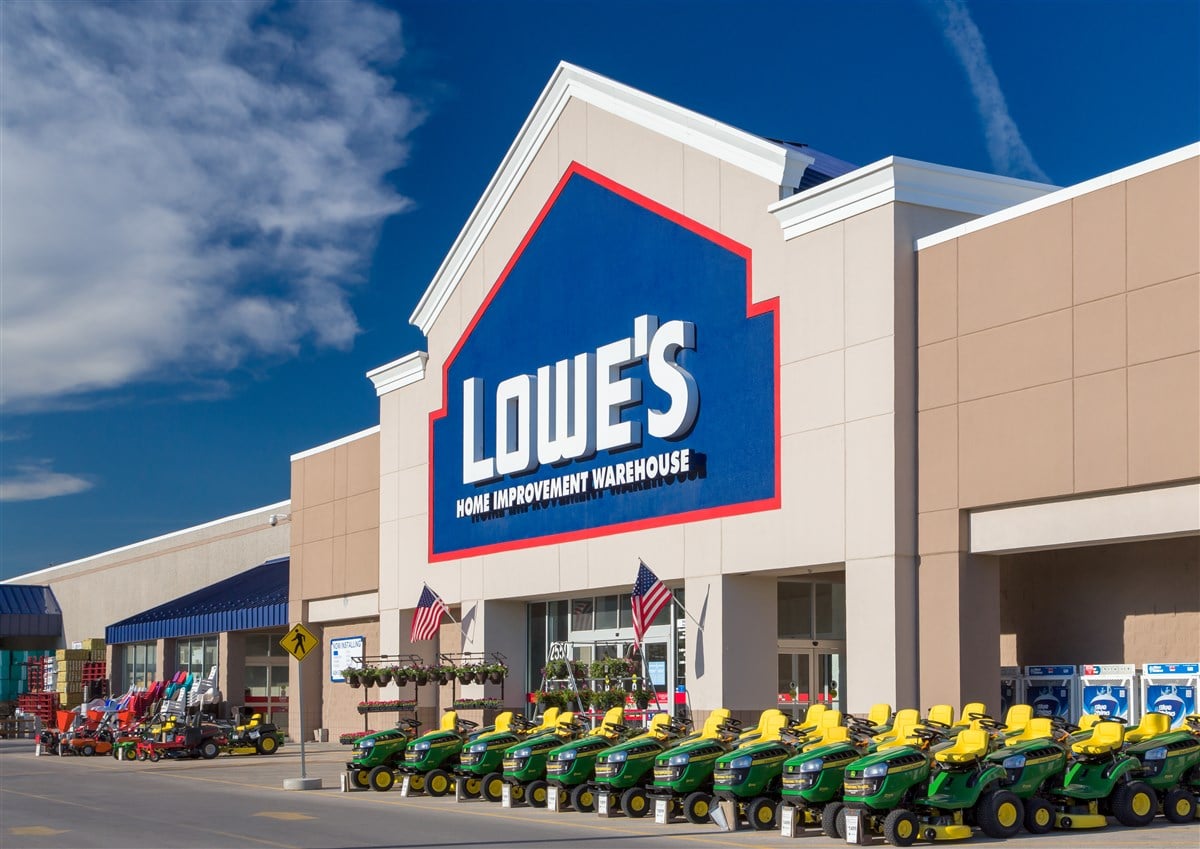
The recent third-quarter financial report for Lowe's Companies (NYSE: LOW) has unfurled a complex web of financial triumphs and challenges. Despite exceeding market projections, Lowe's faced a drop in total revenues, starkly contrasting with anticipated figures. This stumble was magnified by a startling decline in U.S. same-store sales, catching analysts off guard.
These abrupt declines are intertwined with a shift in consumer behavior. This change in consumer behavior is a blend of economic and homeowner preferences changes. High mortgage rates have doused prospective home buyers' fire, stifling home improvement investments. While Lowe's caters to professional contractors and DIY enthusiasts, the latter significantly contributes to its revenue stream. However, the retail sector as a whole has experienced an unexpectedly sharp reduction in spending, rattling Lowe's quarterly performance as well as the performance of many of its peers.
Drilling into financial figures
Lowe's earnings per share (EPS) for the quarter tallied at $3.06, slightly exceeding the market's predictions. Despite this, the celebrations were short-lived due to a significant 12.8% plunge in total revenues, which settled at $20.47 billion, substantially below the projected figures. Moreover, the U.S. same-store sales sustained a sharp 7.4% decline. This steep drop in same-store sales caught many analysts off guard.
This decline is primarily attributed to shifting consumer behaviors influenced by economic fluctuations and evolving homeowner priorities. High mortgage rates have curbed the aspirations of many Americans to move houses, limiting their ability to invest in home improvements or renovations. While Lowe's caters to both the professional contractor segment and the do-it-yourself (DIY) consumers, the latter accounts for a substantial portion of its revenue. However, this segment experienced a greater-than-expected reduction in spending, significantly impacting Lowe's quarterly performance.
Reassessing the path ahead
In response to the challenging market conditions, Lowe's revised its full-year outlook for fiscal 2023. The EPS projection was adjusted downward to $13.00 from the earlier range of $13.20 to $13.60, indicating a more conservative stance amidst uncertainties. Furthermore, the revenue forecasts experienced a significant reduction, now projected at $86 billion, compared to the previously optimistic estimates ranging from $87 billion to $89 billion. The predicted same-store sales slump of around 5% is a deviation from the initial projection of a milder 2% to 4% decline, underscoring the company's efforts to adapt to the evolving market landscape.
Benchmarking amidst rivals
If we take a wider view of the retail sector, it's clear that Lowe's isn't alone in its challenges. Companies like Home Depot (NYSE: HD) also encounter similar obstacles. Home Depot, one of Lowe's main competitors in the home improvement retail sphere, managed to perform better than people expected in selling items related to home improvement.
This comparison sheds light on the distinct approaches and strategies these two retail giants adopt when navigating tough market times. Despite operating in the same industry, their methods, adaptations, and resilience to market shifts set them apart. While both companies work in the same space, they tackle problems and adapt uniquely.
The CEO's vision for navigating the storm
Marvin Ellison, CEO of Lowe's, acknowledged the notable decline in discretionary spending for DIY projects, a vital revenue driver for the company. Despite these challenges, Ellison reaffirmed Lowe's commitment to elevating customer experiences. The company's strategic thrust toward providing value and convenience, especially during the upcoming holiday season, aims to foster customer loyalty amid tightened consumer budgets.
Interpreting investor sentiment via market response
Lowe's stock price fell after the company released its earnings report. This was in line with broader industry trends, as other home improvement retailers also saw their stock prices decline. The decline reflects investor concerns about the outlook for the home improvement sector due to factors such as rising interest rates and inflation. These factors are making it more expensive for homeowners to afford home improvement projects, putting pressure on demand for Lowe's products and services.
In addition to the stock market reaction, Lowe's also saw a decline in consumer confidence. According to a recent survey, many homeowners plan to delay or cancel home improvement projects in the next year due to rising costs. This is a reflection of the broader economic slowdown, which is making it more difficult for consumers to afford discretionary spending.
Understanding industry analysis
Despite the immediate decline in revenue, analysts remain cautiously optimistic about Lowe's long-term growth prospects. Several factors support this view, including the company's strong brand reputation, its extensive network of stores, and its growing focus on the professional contractor segment.
Analysts point to Lowe's investments in digital technologies and omnichannel retailing as key drivers of future growth. These investments are expected to enhance the customer experience, improve operational efficiency, and expand Lowe's reach to a wider customer base.
However, analysts also acknowledge Lowe's challenges in the current economic environment. Rising interest rates and inflation are putting pressure on consumer spending, and the company faces increased competition from traditional and online retailers.
While unsettling, Lowe's recent financial headwinds mirror the changing consumer preferences within the home improvement landscape. As Lowe's recalibrates its strategies to align with evolving market demands, the industry watches closely, observing the company's trajectory and the evolving shape of the sector.






